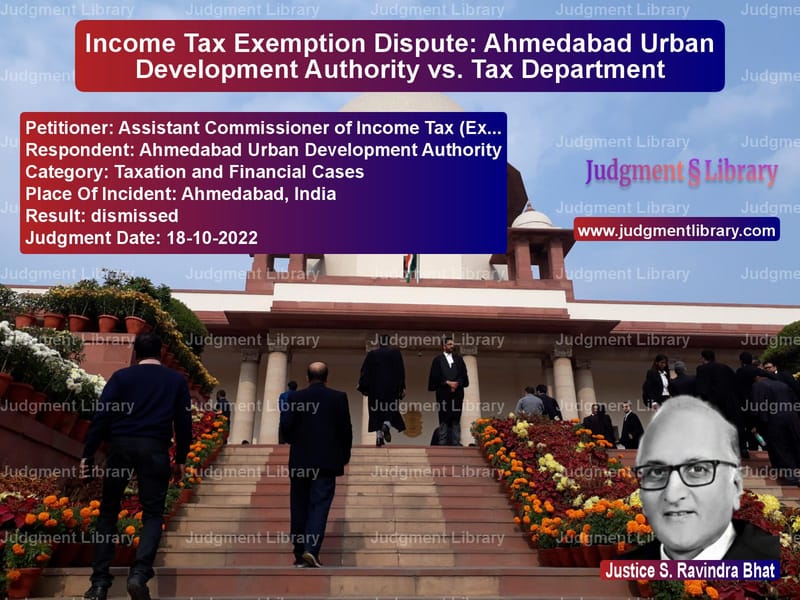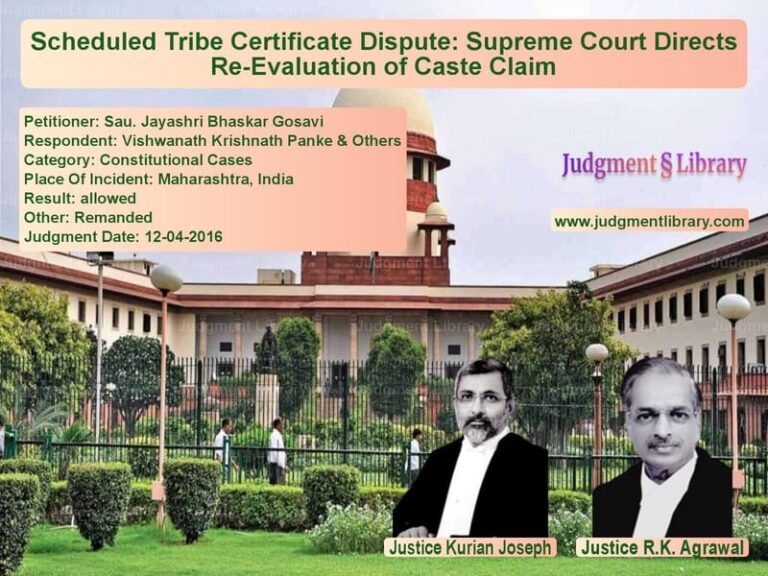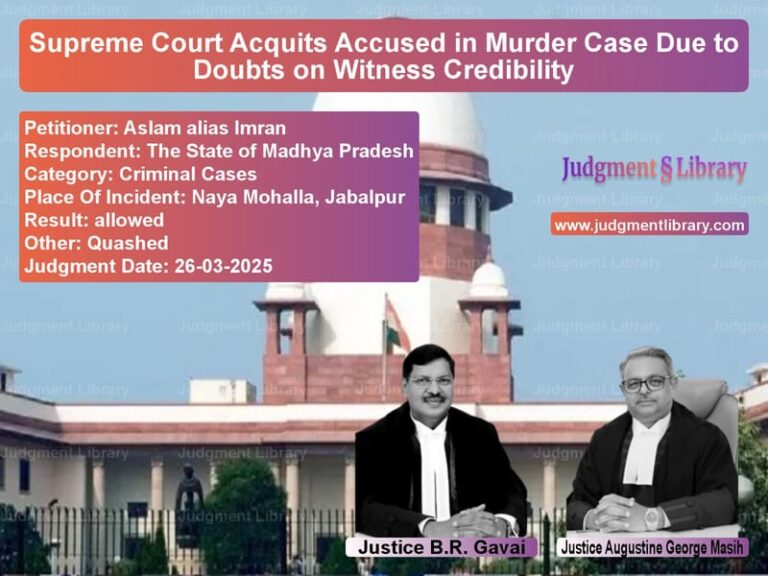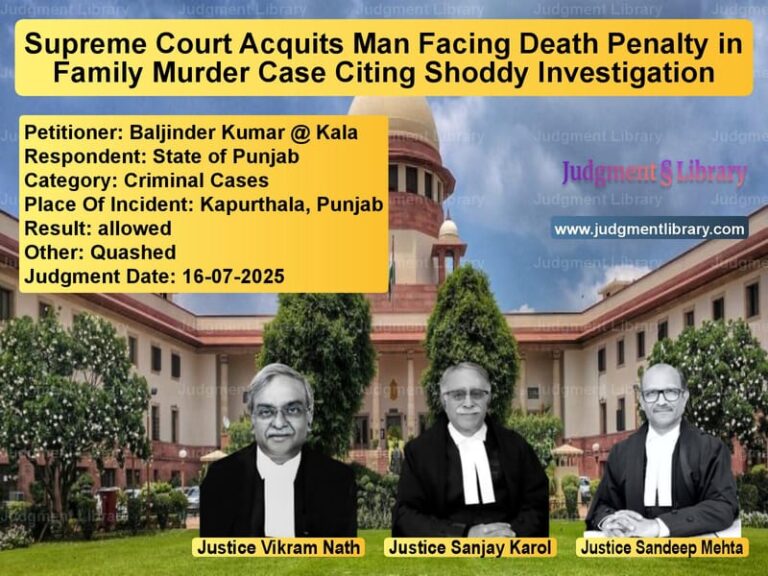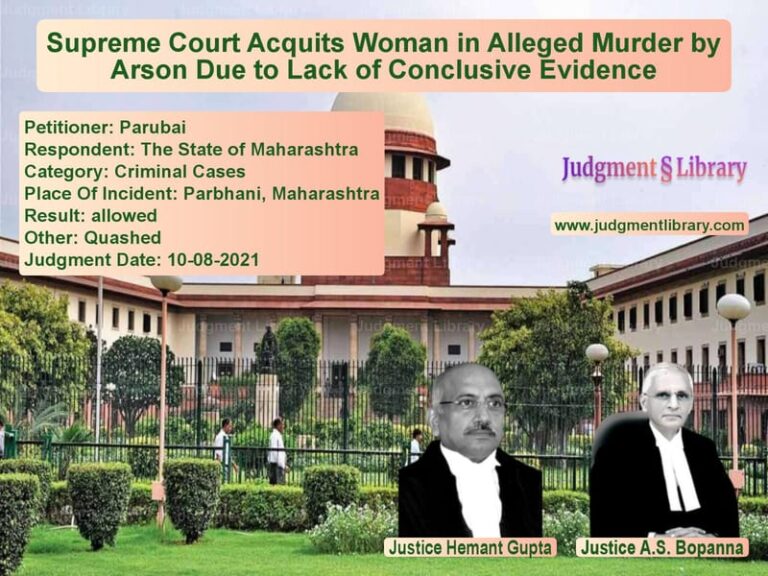Income Tax Exemption Dispute: Ahmedabad Urban Development Authority vs. Tax Department
The case of Assistant Commissioner of Income Tax (Exemptions) vs. Ahmedabad Urban Development Authority is a landmark judgment in the realm of taxation and financial compliance. It centers on the applicability of tax exemptions to urban development authorities under the Income Tax Act, 1961. The Supreme Court’s ruling clarified the limitations of such exemptions, particularly regarding revenue-generating activities of statutory bodies.
Background of the Case
The Ahmedabad Urban Development Authority (AUDA) was established to oversee urban planning and development in the Ahmedabad region. The primary legal issue in this case was whether the income derived from AUDA’s operations, including land transactions and leasing activities, qualifies for tax exemption under Section 10(20) of the Income Tax Act.
The Income Tax Department contended that AUDA engaged in commercial activities beyond its statutory mandate and that the revenue earned should be taxable. AUDA, on the other hand, argued that its activities were integral to public welfare and should remain exempt from taxation.
Legal Provisions Involved
The case primarily revolved around the interpretation of the following key provisions:
- Section 10(20) of the Income Tax Act: Defines the entities eligible for tax exemptions, primarily municipal bodies.
- Section 2(31) of the Income Tax Act: Specifies the classification of ‘persons’ for taxation purposes, including statutory authorities.
- Finance Act amendments: Revisions that altered the definition of tax-exempt government bodies.
Arguments by the Petitioner (Income Tax Department)
The Assistant Commissioner of Income Tax (Exemptions) presented the following key arguments:
- The Ahmedabad Urban Development Authority generates substantial revenue from leasing land and commercial transactions.
- Such activities do not constitute municipal functions as defined under Section 10(20) of the Income Tax Act.
- The Supreme Court, in previous judgments, has clarified that only entities explicitly mentioned in Section 10(20) are eligible for exemption.
- Exempting commercial revenues would create an imbalance in tax compliance and loss of revenue for the government.
Arguments by the Respondent (AUDA)
The Ahmedabad Urban Development Authority countered these claims with the following points:
- Its primary function is urban planning, which is a governmental duty and should remain tax-exempt.
- Revenue from land transactions and leasing is reinvested into infrastructure and public services.
- Municipalities engaged in similar activities are tax-exempt, and denying AUDA the same treatment is discriminatory.
- Past exemptions granted to AUDA should continue, as there has been no fundamental change in its functions.
Supreme Court’s Observations
The Supreme Court analyzed past legislative changes, financial records, and precedents to reach a conclusion. The key observations included:
- The amendments in the Finance Act have narrowed the scope of tax exemption under Section 10(20).
- Entities engaged in revenue-generating activities must distinguish between core governmental functions and commercial operations.
- AUDA’s financial reports indicated income that could not be directly linked to municipal governance.
- Exemptions should be strictly interpreted and not extended beyond the statutory framework.
Final Judgment
The Supreme Court ruled that the Ahmedabad Urban Development Authority is not eligible for tax exemption under Section 10(20) of the Income Tax Act. The petition by AUDA was dismissed, and it was directed to comply with the tax regulations.
Impact of the Judgment
This ruling has far-reaching implications for urban development authorities and other statutory bodies seeking tax exemptions. The key takeaways include:
- Government bodies engaging in commercial activities must reassess their tax liabilities.
- Urban planning authorities across India will need to determine whether their revenue sources qualify for tax exemptions.
- The decision reinforces that tax exemptions should be interpreted strictly as per legislative provisions.
Overall, this case serves as a benchmark for financial compliance and tax accountability, ensuring that statutory bodies operate within defined legal frameworks.
Petitioner Name: Assistant Commissioner of Income Tax (Exemptions).Respondent Name: Ahmedabad Urban Development Authority.Judgment By: Justice S. Ravindra Bhat.Place Of Incident: Ahmedabad, India.Judgment Date: 18-10-2022.
Don’t miss out on the full details! Download the complete judgment in PDF format below and gain valuable insights instantly!
Download Judgment: assistant-commission-vs-ahmedabad-urban-deve-supreme-court-of-india-judgment-dated-18-10-2022.pdf
Directly Download Judgment: Directly download this Judgment
See all petitions in Income Tax Disputes
See all petitions in Tax Refund Disputes
See all petitions in Banking Regulations
See all petitions in Judgment by S Ravindra Bhat
See all petitions in dismissed
See all petitions in supreme court of India judgments October 2022
See all petitions in 2022 judgments
See all posts in Taxation and Financial Cases Category
See all allowed petitions in Taxation and Financial Cases Category
See all Dismissed petitions in Taxation and Financial Cases Category
See all partially allowed petitions in Taxation and Financial Cases Category

